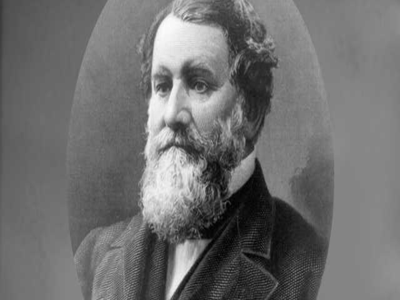
Early Life
Oliver Napoleon Hill's life story is as dramatic and contested as the principles he famously penned in Think and Grow Rich, one of the best-selling self-help books of all time. Born in a one-room cabin in Virginia in 1883, Hill's journey from Appalachian poverty to the summit of American self-help literature is marred by accusations of deception and fraud.
Hill's early life was fraught with hardship. After the death of his mother, his stepmother encouraged him to pursue education and writing, which led to a job with lawyer Rufus A. Ayers and a short-lived stint in law school. Hill's personal life was equally tumultuous, with a marriage annulled at 15 and subsequent marriages marred by allegations of abuse and infidelity.
Entrepreneurial Journey
As a fledgling entrepreneur, Hill faced a string of failed ventures, from the Acree-Hill Lumber Company, which was charged with mail fraud, to the Automobile College of Washington, which was labeled a scam, and the George Washington Institute of Advertising, which he tried to sell shares of at a valuation of $100,000 when the company’s assets were appraised at just $1,200, leading to the state of Illinois issuing multiple arrest warrants for fraud. But each failure seemed to only sharpen his resolve, as he repeatedly reinvented himself amidst controversy.
Despite his dubious past, Hill's "Philosophy of Achievement" captivated the nation. Published in his first book,The Law of Success, his principles of freedom, democracy, capitalism, and harmony promised a blueprint for prosperity that Americans ate up. The book was a best-seller. A year after publishing, Napoleon bought himself a Rolls-Royce and 600 acres of land in the Catskills in upstate New York.
However, Hill's claim to a secret formula for success, allegedly revealed to him by Andrew Carnegie, was never substantiated, and many of his other claims, such as aiding Presidents Wilson and Roosevelt, have been widely discredited.
Yet, it was Think and Grow Rich that cemented Hill's legacy. The book, significant for its vague promise of a hidden secret to prosperity, was a hit. Despite its success, Hill's life remained a series of peaks and valleys, with allegations of spirit visitations and further accusations of fraud.
Legacy
Hill's influence on the self-help industry is undeniable. His works, inspired by New Thought and the philosophy of Ralph Waldo Emerson, have inspired generations of writers and thinkers. In 1995, an authorized biography attempted to solidify his meeting with Carnegie, but the debate over the authenticity of his claims persists.
The Napoleon Hill Foundation, established to promote his teachings, continues to navigate the complexities of his legacy, selling his books and courses and striving to maintain the relevance of his "Philosophy of Achievement."
As we reflect on Hill's life, we can’t help but wonder: Can the measure of a man be found in the success of his philosophies, or do the shadows of his personal misgivings cast a cloud over his achievements? Napoleon Hill remains a figure shrouded in the mystique of potential and the controversy of his past.







